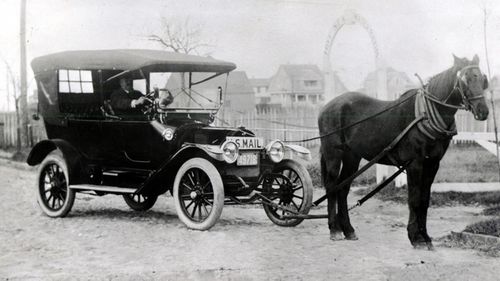Difference between revisions of "Torts CCC"
Neumoeglich (talk | contribs) |
Neumoeglich (talk | contribs) |
||
| Line 33: | Line 33: | ||
You can start your records search at the [https://sccourts.org/caseSearch the SC courts website]. For research assistance (in this assignment and throughout law school), you can contact our outstanding librarians: [https://www.sc.edu/study/colleges_schools/law/law_library/research/index.php Ask-A-Librarian] is available Monday through Friday from 9am to 5pm at. For this particular assignment, coordinate first within your team so that you either collectively contact a librarian or designate one person to contact a librarian on behalf of your team. | You can start your records search at the [https://sccourts.org/caseSearch the SC courts website]. For research assistance (in this assignment and throughout law school), you can contact our outstanding librarians: [https://www.sc.edu/study/colleges_schools/law/law_library/research/index.php Ask-A-Librarian] is available Monday through Friday from 9am to 5pm at. For this particular assignment, coordinate first within your team so that you either collectively contact a librarian or designate one person to contact a librarian on behalf of your team. | ||
| + | |||
| + | == Rowland arguments == | ||
| + | Assume that the California Supreme Court has not yet issued its opinion in Rowland. | ||
| + | |||
| + | The court first asks for argument on whether, under the traditional status trichotomy, the trial court's grant of summary judgment should be upheld or reversed. | ||
| + | |||
| + | * Circuits 1-4: Prepare your argument for the defendant. | ||
| + | * Circuits 5-8: Prepare your argument for the plaintiff. | ||
| + | |||
| + | The court next asks for argument on whether it should replace the traditional status trichotomy with a general duty of reasonable care for premises cases. | ||
| + | |||
| + | * Circuits 9-12: Prepare your argument for the defendant. | ||
| + | * Circuits 13-16: Prepare your argument for the plaintiff. | ||
Revision as of 09:27, 24 February 2021
A blank slate
This is the first exercise for your "Circuit Court Circuit" (CCC).
Imagine that we are in the early 1900s as "horseless carriages" are starting to rapidly replace horses and bicycles on American streets. Your state legislature asks your team of lawyers to recommend a set of rules, policies, processes, systems, and incentives that will (1) encourage motor vehicle safety and (2) help people who are harmed by motor vehicles (including the families of those who are killed).
Although plenty of law in the early 1900s was in fact relevant, for our purposes you should assume that there is no relevant law. You have a blank slate!
Using your group wiki, your team should develop and document a cohesive set of recommendations to achieve both of these goals. For example, how will you ensure or encourage safer vehicles, roads, and users? Who will cover the costs incurred by and for people who are nonetheless injured? In each case, what roles will courts, governmental regulators, and others play?
For this assignment, each of you should expect to spend about 30 minutes contributing your own ideas and another 30 minutes working with your team members (either synchronously or asynchronously) to refine these ideas into a set of key proposals that any one of you can clearly summarize in 1 minute.
Necessary conditions
Work with your Circuit Court Circuit teammates to:
- Propose and explain a complete set of elements (i.e., necessary conditions) for the tort of negligence.
- Ensure that each element is singular (i.e., it should comprise a single condition only). Conjunctions (e.g., and, or, that, which, with, without) might be a hint that your element is not singular.
- Adjust your elements so that your proposed tort is neither overinclusive (by creating liability where it should not) nor underinclusive (by not creating liability where it should).
- Describe at least three hypothetical situations that satisfy your proposed elements and at least three hypothetical situations that do not.
- Document all your work on your team's Blackboard wiki.
For this exercise, I am much more interested in your collective creative thinking and logical reasoning than in your past work experience or outside research. In other words, focus on figuring out what the elements of negligence could and should be rather than on trying to remember or learn what they actually are.
Complaint search
In your CCC team:
- Learn something unique about the region of South Carolina covered by your circuit.
- Find an actual complaint from a tort case in your circuit.
- Read, discuss, and critique the complaint.
- Summarize your team's work (including a link to the complaint) in a brief post on the Discussion page (below).
Your CCC team should work together synchronously, preferably by video, to complete these steps. You can use Blackboard (Teams --> SC Circuit Court --> Group Tools --> Collaborate), Microsoft Teams, or another service of your choice.
You can start your records search at the the SC courts website. For research assistance (in this assignment and throughout law school), you can contact our outstanding librarians: Ask-A-Librarian is available Monday through Friday from 9am to 5pm at. For this particular assignment, coordinate first within your team so that you either collectively contact a librarian or designate one person to contact a librarian on behalf of your team.
Rowland arguments
Assume that the California Supreme Court has not yet issued its opinion in Rowland.
The court first asks for argument on whether, under the traditional status trichotomy, the trial court's grant of summary judgment should be upheld or reversed.
- Circuits 1-4: Prepare your argument for the defendant.
- Circuits 5-8: Prepare your argument for the plaintiff.
The court next asks for argument on whether it should replace the traditional status trichotomy with a general duty of reasonable care for premises cases.
- Circuits 9-12: Prepare your argument for the defendant.
- Circuits 13-16: Prepare your argument for the plaintiff.
